Svalbard And Its Rapidly Disappearing Glaciers – Groundbreaking Research
Eddie Gonzales Jr. – MessageToEagle.com – Svalbard is one of the fastest-warming places on Earth.
Previously known as Spitsbergen or Spitzbergen, Svalbard is a Norwegian archipelago in the Arctic Ocean. North of mainland Europe, it lies about midway between the northern coast of Norway and the North Pole.
Picture of Longyearbyen with a view of the Adventfjord. Image credit: Michael Haferkamp – CC BY-SA 3.0
A new study reveals alarming glacier shrinkage in Svalbard, a global warming hotspot, over the past 40 years, with the most significant retreat occurring recently.
The research, led by the University of Bristol and published in Nature Communications, shows the vast majority (91%) of glaciers across Svalbard in the Arctic have been significantly shrinking. Findings revealed an area loss of more than 800 km2 at the glacier margins in this Norwegian group of islands since 1985.
The study also found that more than half of the glaciers (62%) undergo seasonal cycles in glacier calving – when large chunks of ice break away due to higher ocean and air temperatures.
Lead author Dr Tian Li, Senior Research Associate at the University’s Glaciology Centre, said: “The scale of glacier retreats over the past few decades is astonishing, almost covering the entire Svalbard. This highlights the vulnerability of glaciers to climate change, especially in Svalbard, a region experiencing rapid warming up to seven times faster than the global average.”
The research team deployed Artificial Intelligence (AI) to quickly identify glacier patterns across large areas. Using a novel AI model, they analysed millions of satellite images capturing the end positions of glaciers across the entire Svalbard.
The findings provide an unprecedented level of detail into the scale and nature of glacier loss in this region. The biggest spike in glacier retreats was detected in 2016, when the calving rates were double the average between 2010 and 2015, in response to extreme warming events.
“This was likely caused by a large-scale weather pattern called atmospheric blocking that can influence atmospheric pressures,” Dr Li said.
“With the increasing frequency of atmospheric blocking and ongoing regional warming, future retreats of glaciers are expected to accelerate, resulting in greater glacier mass loss. This would change the ocean circulation and marine life environments in the Arctic.”
Svalbard is one of the fastest-warming places on Earth. The low altitude of the archipelago’s ice fields and geographical location in the high North Atlantic make it especially sensitive to climate change.
Co-author Jonathan Bamber, Professor of Glaciology at the University of Bristol, said: “Glacier calving is a poorly modelled and understood process that plays a crucial role in the health of a glacier. Our study provides valuable insights into what controls calving and how it responds to climate forcing in an area at the frontline of global warming.”
Written by Eddie Gonzales Jr. – MessageToEagle.com Staff Writer
Related Posts
-
 Measuring Greenhouse Gas With Satellites
No Comments | Dec 16, 2024
Measuring Greenhouse Gas With Satellites
No Comments | Dec 16, 2024 -
 Earth’s ‘Dirty Mirror’ Effect Accelerates Climate Change
No Comments | Mar 13, 2025
Earth’s ‘Dirty Mirror’ Effect Accelerates Climate Change
No Comments | Mar 13, 2025 -
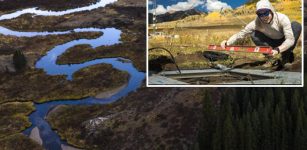 Why Isn’t Colorado’s Snowpack Ending Up In The Colorado River? Research Points to Lack of Spring Rain
No Comments | Aug 20, 2024
Why Isn’t Colorado’s Snowpack Ending Up In The Colorado River? Research Points to Lack of Spring Rain
No Comments | Aug 20, 2024 -
 “Ocean Skin”: Sliver Of Cool Surface Water Helps The Ocean Absorb More Carbon
No Comments | Oct 25, 2024
“Ocean Skin”: Sliver Of Cool Surface Water Helps The Ocean Absorb More Carbon
No Comments | Oct 25, 2024 -
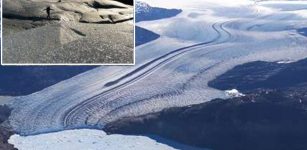 South America’s Icefields – Larger Than All Glaciers In The European Alps Together
No Comments | Mar 26, 2024
South America’s Icefields – Larger Than All Glaciers In The European Alps Together
No Comments | Mar 26, 2024 -
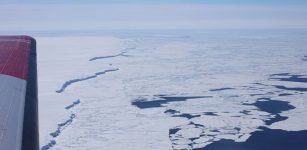 Meltwater Flowing Beneath Antarctic Glaciers May Be Accelerating Their Retreat
No Comments | Oct 29, 2023
Meltwater Flowing Beneath Antarctic Glaciers May Be Accelerating Their Retreat
No Comments | Oct 29, 2023 -
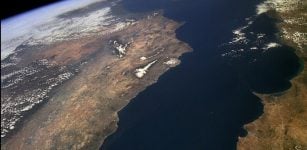 Gibraltar Subduction Zone Will Contribute To Forming An Atlantic Ring Of Fire – New Study
No Comments | Feb 17, 2024
Gibraltar Subduction Zone Will Contribute To Forming An Atlantic Ring Of Fire – New Study
No Comments | Feb 17, 2024 -
 Cosmic Rays Can Help Track And Effectively Study Violent Tornadoes
No Comments | Jul 19, 2024
Cosmic Rays Can Help Track And Effectively Study Violent Tornadoes
No Comments | Jul 19, 2024 -
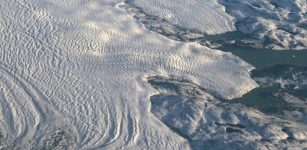 Greenland’s Glacier Retreat Rate Has Doubled Over Past Two Decades
No Comments | Nov 11, 2023
Greenland’s Glacier Retreat Rate Has Doubled Over Past Two Decades
No Comments | Nov 11, 2023 -
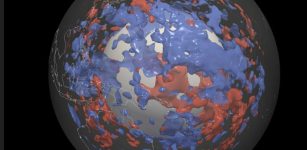 Sunken Worlds Under The Pacific? Current Understanding Of Plate Tectonics – Questioned
No Comments | Jan 8, 2025
Sunken Worlds Under The Pacific? Current Understanding Of Plate Tectonics – Questioned
No Comments | Jan 8, 2025

